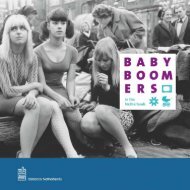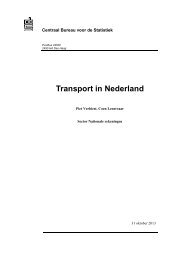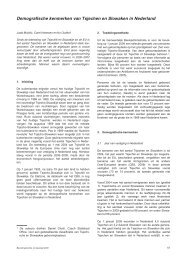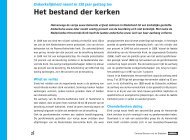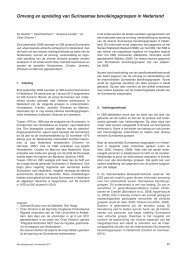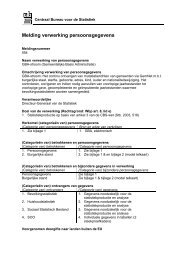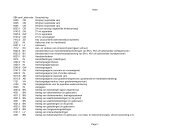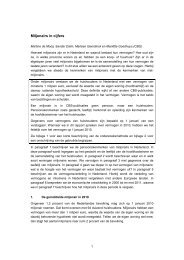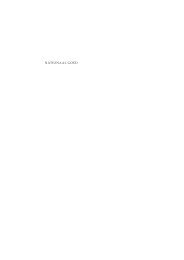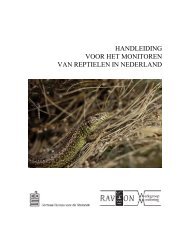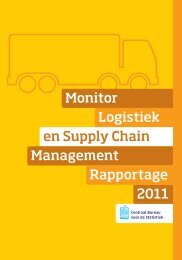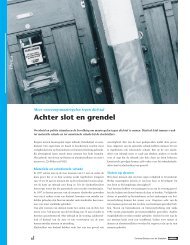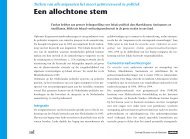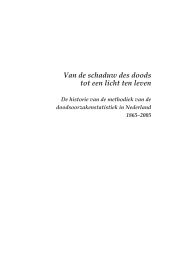statistical yearbook of the netherlands antilles 2009 - Cbs
statistical yearbook of the netherlands antilles 2009 - Cbs
statistical yearbook of the netherlands antilles 2009 - Cbs
You also want an ePaper? Increase the reach of your titles
YUMPU automatically turns print PDFs into web optimized ePapers that Google loves.
Education<br />
Introduction<br />
The <strong>statistical</strong> information on education contains data on:<br />
Statistical Yearbook <strong>2009</strong><br />
F. Education<br />
- <strong>the</strong> enrollment <strong>of</strong> pupils/students in <strong>the</strong> different types <strong>of</strong> education<br />
- <strong>the</strong> material means (schools/institutions)<br />
- <strong>the</strong> human resources (teachers)<br />
- <strong>the</strong> number <strong>of</strong> students that have graduated<br />
The figures in this publication regard only full-time regular education. That<br />
is, educational programs in which pupils/students take a fixed number <strong>of</strong><br />
lessons at a day school or institution during a week and for a complete<br />
academic year.<br />
In table 1 <strong>the</strong> participation <strong>of</strong> <strong>the</strong> pupils/students at <strong>the</strong> different levels <strong>of</strong><br />
education and <strong>the</strong> supply <strong>of</strong> material facilities and human resources are<br />
presented for each island. Should an educational facility not exist in one<br />
island, students may enroll in an educational program in one <strong>of</strong> <strong>the</strong> o<strong>the</strong>r<br />
islands.<br />
Table 2, 3 and 4 give information on <strong>the</strong> number <strong>of</strong> students that have<br />
graduated from high school, vocational education and university.<br />
Important to mention is that <strong>the</strong> last ten years different innovations in <strong>the</strong><br />
field <strong>of</strong> education were introduced. It started in 1998 with <strong>the</strong> introduction<br />
<strong>of</strong> <strong>the</strong> Basisvorming (Basic Secondary Education) which covers <strong>the</strong> first two<br />
years <strong>of</strong> secondary education. Next followed <strong>the</strong> introduction <strong>of</strong> HAVO/VWO<br />
nieuwe stijl (<strong>the</strong> renewed Senior High school) where students have to choose<br />
pr<strong>of</strong>iles which fit <strong>the</strong>ir interests and future plans. In 2002 <strong>the</strong> concept <strong>of</strong><br />
Funderend Onderwijs (Foundation Based Education) was introduced. The<br />
former kindergarten and primary education were merged into one system.<br />
This system consists <strong>of</strong> two cycles: <strong>the</strong> first cycle is meant for children age 4<br />
to 8 and <strong>the</strong> second cycle for children age 9 to 12. Foundation Based<br />
Education is in <strong>the</strong> process <strong>of</strong> introduction and has not been fully<br />
implemented yet. After Foundation Based Education children enroll in Basic<br />
Secondary Education. In 2002 VSBO (Preparatory Secondary Vocational<br />
Education) replaced <strong>the</strong> MAVO and BVO (Secondary Education) and is<br />
functioning as a preparatory school for <strong>the</strong> SBO (Senior Secondary Vocational<br />
Education). The latter was introduced in 2004 as a replacement for <strong>the</strong> MBO<br />
(Senior Secondary Vocational Education).<br />
As a consequence <strong>of</strong> <strong>the</strong> many changes in <strong>the</strong> educational sector it is not<br />
always possible to present <strong>statistical</strong> information on education in a<br />
consistent manner.<br />
39



